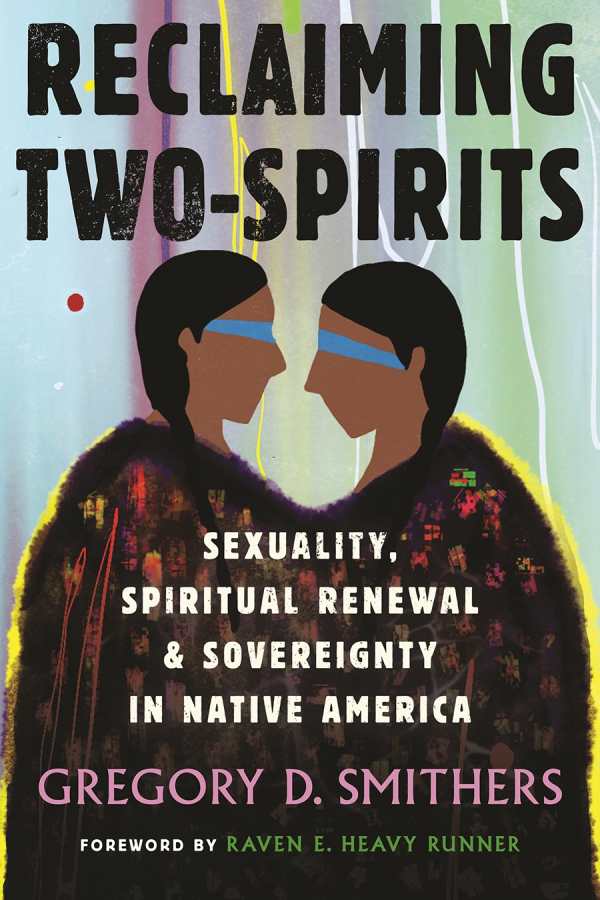Reclaiming Two-Spirits
Sexuality, Spiritual Renewal & Sovereignty in Native America
Historian of Native America Gregory D. Smithers’s Reclaiming Two-Spirits tackles the colonization of sexuality and gender in Indigenous American communities.
“‘Two-Spirit,’” Smithers explains, “is derived from the Northern Algonquin word niizh manitoag, which denotes the existence of feminine and masculine qualities in a single person.” Though a modern term, for centuries pre-colonization, Native people embraced those who did not fit into the gender binary with little fanfare: “the idea of static gender or sexual categories made little sense for people who strove to bring balance and harmony to their communities.” Their ideas around sex and gender “blended occupational roles, physical characteristics and clothing, speech patterns and jewelry, and spiritual and ceremonial participation,” and they did not rigidly equate biological sex with gender. Colonization stripped Indigenous people of this cultural nuance, forcing adherence to strict sexual categories and gender roles; the modern Two-Spirit movement seeks to undo this damage.
Smithers’s book aims to document the long, devastating history of systemic attacks on the sexual sovereignty of Indigenous people by various colonial presences. Centuries of assimilationist policies are examined, as well as their primary motivations: dismissing the fluidity of sex and gender within Indigenous communities as “effeminancy” or the effect of demonic forces helped to justify increasing physical and psychological abuses against Native people. Within this historical context, the resiliency of Two-Spirit communities is awe-inspiring.
Throughout, Smithers, who is non-Native, is respectful of the people and histories that he encounters and explores. He cautions against equating “Two-Spirit” with static nouns such as “queer” or “transgender,” as affixing such labels to the layered history and experience of Two-Spirit people is “a recolonization.” Conversations with Two-Spirit individuals and activists, as well as allies to Two-Spirit and Indigenous communities, bolster and inform his positions, providing deeper insight into the experiences, cultures, and futures of Two-Spirit communities.
Reviewed by
Danielle Ballantyne
Disclosure: This article is not an endorsement, but a review. The publisher of this book provided free copies of the book to have their book reviewed by a professional reviewer. No fee was paid by the publisher for this review. Foreword Reviews only recommends books that we love. Foreword Magazine, Inc. is disclosing this in accordance with the Federal Trade Commission’s 16 CFR, Part 255.

